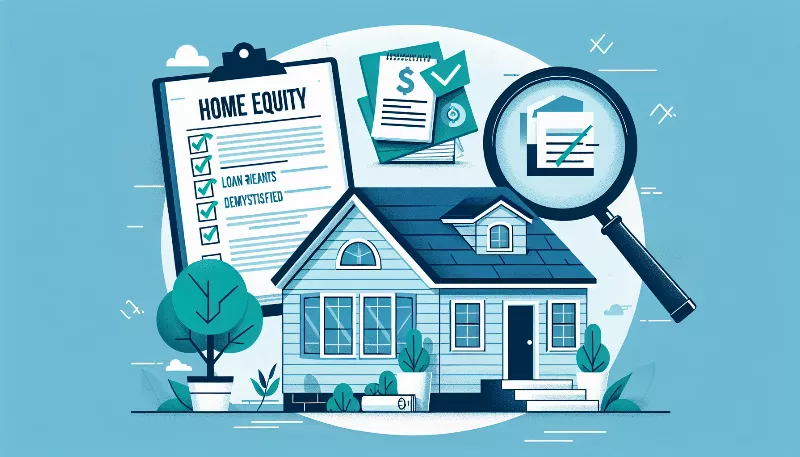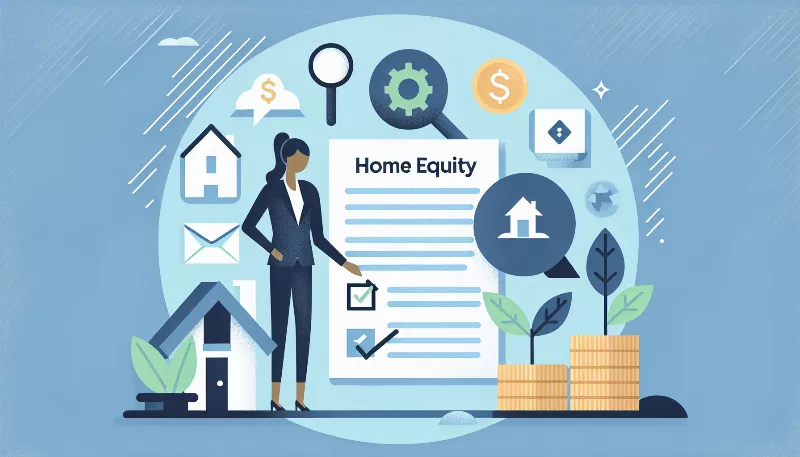Home Equity Loans Demystified: Understanding the Must-Have Requirements
Unlock the secrets of home equity loans! Learn the essential criteria to qualify and leverage your home's value wisely. Get expert insights now!

Unlock the Power of Your Home's Value!
Are you sitting on a goldmine of untapped value in your home? It's time to turn that equity into a powerful financial tool with a home equity loan! This type of loan can be a game-changer for homeowners looking to consolidate debt, make home improvements, or cover unexpected expenses. But before you dive in, let's demystify the must-have requirements to ensure you're fully prepared to unlock the potential of your home's equity.
Solid Foundation of Equity
First things first, you need equity?plain and simple. Equity is the difference between what your home is worth and what you owe on your mortgage. Lenders typically require that you have at least 15-20% equity in your home before considering you for a loan. This requirement is not just a number; it's a testament to your investment in your property and a measure of the loan's security for the lender.
Stellar Credit Score: Your Financial Report Card
Your credit score is like a report card for your financial history, and it needs to make the grade when applying for a home equity loan. A high credit score can open the door to lower interest rates and better terms. Most lenders look for a score of 620 or higher, but the best deals are often reserved for those with scores above 700. If your credit score could use a boost, consider taking steps to improve it before applying for a loan.
Debt-to-Income Ratio: Balancing Act
Lenders will scrutinize your debt-to-income (DTI) ratio, which is a measure of how your monthly debt payments compare to your income. A low DTI ratio shows lenders that you're not overextended and that you're likely to manage additional loan payments. Typically, lenders prefer a DTI ratio of 43% or lower. If your DTI ratio is higher, you may need to pay down some debt before you can qualify for a home equity loan.
Proof of Income: Show Me the Money!
When it comes to home equity loans, lenders want assurance that you can pay back the borrowed funds. You'll need to provide proof of steady income through pay stubs, tax returns, and other financial documents. This requirement is crucial because it demonstrates your ability to handle the loan alongside your existing financial obligations.
Appraisal: The True Value Revealed
An appraisal is often required to determine the current value of your home. This step is vital because it gives both you and the lender a clear picture of how much equity you actually have. The appraised value can affect the loan amount you're eligible for, so it's important to have a realistic understanding of your home's worth in the current market.
Home Insurance: Protecting Your Investment
Before a lender will issue a home equity loan, they'll want to ensure that your home is adequately insured. Home insurance protects against potential losses or damages, which in turn protects the lender's investment in your property. Make sure your policy is up to date and provides sufficient coverage for the value of your home.
Conclusion: Your Path to Financial Flexibility
Meeting these requirements might seem like a tall order, but they're all about ensuring that taking out a home equity loan is a safe and smart financial move for both you and the lender. With the right preparation, a home equity loan can be an incredibly flexible tool that empowers you to make the most of your home's value. So, gather your documents, polish your credit score, and get ready to tap into the power of your home equity!









